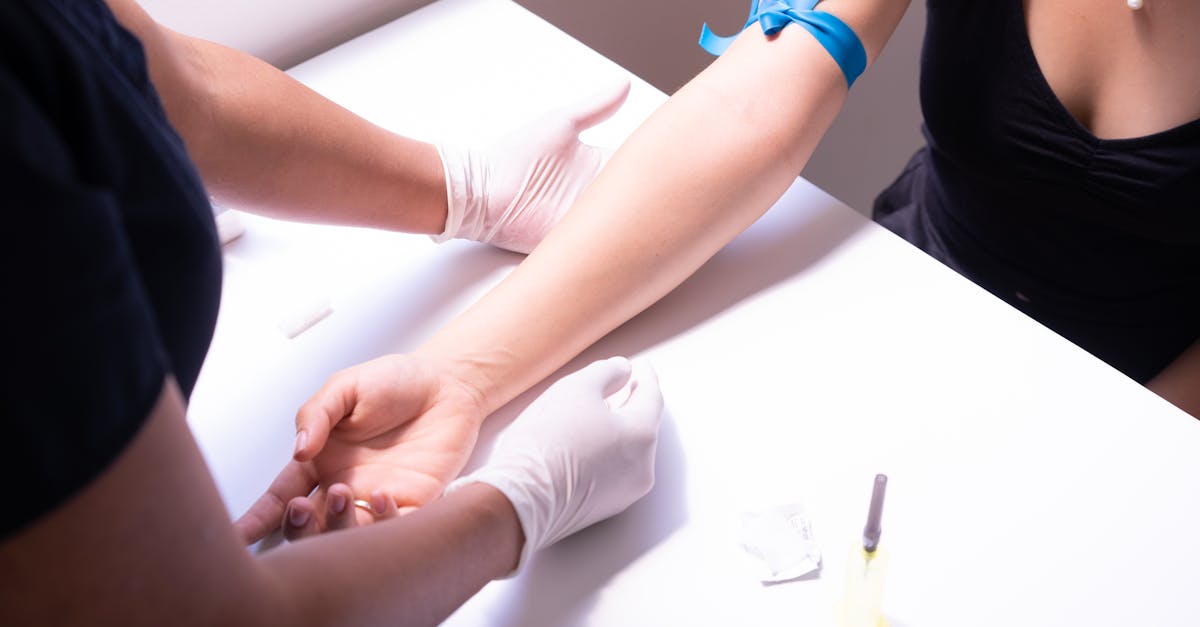
Table Of Contents
Access to Clean Water
Access to clean water is fundamental in Disease Prevention near me. Ensuring that communities have access to safe and clean water sources is crucial for maintaining good health. Contaminated water can lead to the spread of waterborne diseases such as cholera, typhoid fever, and dysentery, highlighting the importance of clean water for disease prevention.
Additionally, proper water sanitation practices are essential to prevent the proliferation of harmful pathogens. Implementing effective water treatment methods and maintaining hygiene standards in water storage and distribution systems are imperative in reducing the risk of waterborne illnesses. Ultimately, promoting access to clean water not only safeguards health but also plays a pivotal role in preventing the outbreak and transmission of diseases within communities.
Water Sanitation
Water sanitation plays a crucial role in disease prevention near me. Ensuring access to clean water and proper sanitation facilities is fundamental in reducing the spread of waterborne diseases. By implementing effective water sanitation practices, communities can significantly lower the risk of illnesses caused by contaminated water sources. This includes treating water to remove harmful contaminants and implementing systems to safely dispose of waste to prevent environmental contamination.
Additionally, promoting good hygiene practices alongside water sanitation efforts further enhances disease prevention near me. Encouraging regular handwashing with clean water and soap can effectively reduce the transmission of various infectious diseases. Education on proper sanitation practices within communities is essential for fostering a culture of health and wellbeing, ultimately creating a safer environment for all individuals.
Personal Protective Equipment
Personal Protective Equipment plays a critical role in Disease Prevention near me. Masks and gloves are commonly used to protect against the spread of infectious diseases by minimizing exposure to respiratory droplets and contaminated surfaces. Masks effectively cover the nose and mouth, reducing the risk of inhaling or transmitting viruses. Gloves act as a barrier to prevent direct contact with infected individuals or contaminated surfaces, decreasing the likelihood of transmission through touch.
In various settings, Personal Protective Equipment is essential for safeguarding individuals from potential health hazards. Healthcare workers, in particular, rely on PPE to protect themselves and patients from cross-contamination in medical environments. The proper use of masks and gloves is crucial to maintaining a safe and hygienic environment, ultimately contributing to effective disease control and prevention efforts in communities across the country.
Masks and Gloves
Masks and gloves are essential components in disease prevention near me, particularly during outbreaks of infectious illnesses. Masks act as a barrier to prevent the transmission of respiratory droplets that may contain pathogens, reducing the risk of inhaling or spreading viruses. They are effective in safeguarding both the wearer and those around them from contracting diseases through airborne transmission. Gloves play a crucial role in protecting individuals from directly touching contaminated surfaces, thereby reducing the chances of contracting infections through contact. Regularly changing gloves and avoiding touching one's face while wearing them are key practices in infection prevention.
In healthcare settings, the use of masks and gloves is standard protocol to ensure the safety of both healthcare workers and patients. Proper disposal of masks and gloves after use is vital to prevent the spread of diseases in medical facilities. Additionally, wearing masks and gloves in public places can also contribute to reducing the transmission of infectious diseases, especially during flu seasons or pandemics. Adopting these preventive measures can significantly decrease the risk of contracting and spreading illnesses in the community.
Screening Programs
Screening programs play an essential role in disease prevention near me. These programs aim to detect health issues in individuals before any symptoms become apparent. By identifying illnesses at an early stage, healthcare providers can intervene promptly, potentially preventing the disease from progressing to a more serious or advanced stage. This proactive approach not only benefits the individual by improving treatment outcomes but also contributes to public health by reducing the spread of contagious diseases within the community.
Regular participation in screening programs can significantly impact an individual's overall well-being. Through routine health check-ups and screenings, individuals can be better informed about their health status and any potential risks they may face. By empowering individuals with this knowledge, they are equipped to make informed decisions regarding their health and lifestyle choices. Ultimately, screening programs serve as a proactive measure in maintaining good health and preventing disease near me.
Early Detection
Early detection plays a crucial role in disease prevention near me. Screening programs are designed to identify diseases at early stages when they are most treatable. Regular health screenings, such as blood tests, mammograms, and colonoscopies, can help detect any potential health issues before they progress further. By prioritising routine screenings and check-ups, individuals can take proactive steps towards maintaining their health and well-being.
Moreover, early detection allows for timely medical interventions and treatment plans, ultimately reducing the risk of complications and improving health outcomes in the long term. Through proactive participation in screening programs and health checks, individuals can empower themselves to make informed decisions about their health and take necessary steps to prevent diseases before they become more serious. Being proactive and vigilant about early detection not only supports individual health goals but also contributes to building a healthier community by reducing the overall burden of diseases.
FAQS
How does access to clean water help prevent disease?
Access to clean water is essential for preventing the spread of waterborne diseases such as cholera and typhoid. By providing clean water for drinking and sanitation purposes, the risk of contracting these diseases is significantly reduced.
Why is water sanitation important in disease prevention?
Proper water sanitation practices, such as treating and disinfecting water sources, help eliminate harmful bacteria and pathogens that can cause diseases. This is crucial in preventing the spread of waterborne illnesses within communities.
How does personal protective equipment (PPE) contribute to disease prevention?
Personal protective equipment, such as masks and gloves, creates a barrier between individuals and potentially infectious agents. By wearing PPE, healthcare workers and individuals in high-risk environments can reduce the transmission of diseases.
Why are masks and gloves recommended for disease prevention?
Masks and gloves act as a physical barrier that prevents the transfer of germs and pathogens from one person to another. They are particularly important in situations where there is a risk of exposure to infectious diseases, such as in healthcare settings.
What are screening programs and how do they help in preventing diseases?
Screening programs involve testing individuals for certain diseases or risk factors to identify cases early on. By detecting diseases at an early stage, prompt treatment can be provided, reducing the spread of the disease and improving outcomes.
How does early detection through screening programs benefit disease prevention?
Early detection through screening programs allows healthcare providers to intervene promptly and initiate treatment before the disease progresses or spreads to others. This not only improves the individual's prognosis but also helps prevent further transmission of the disease within the community.


